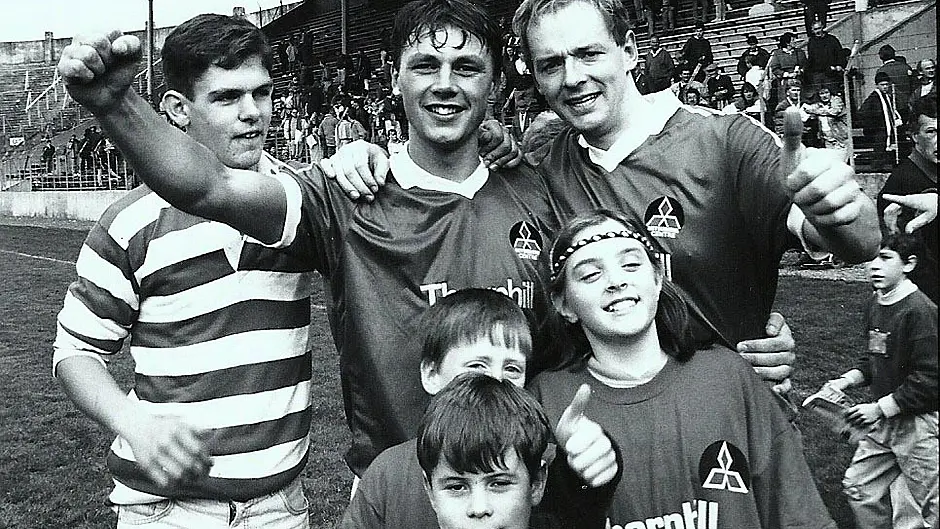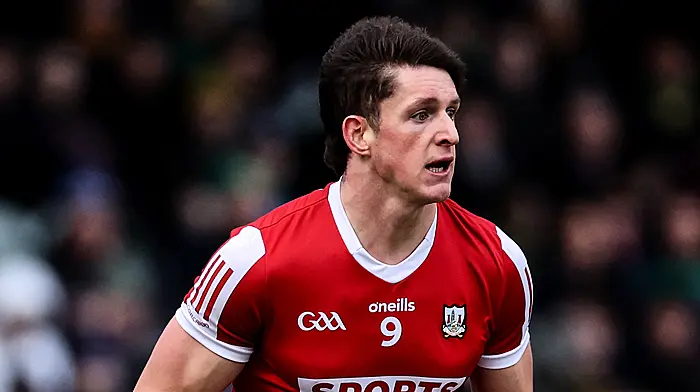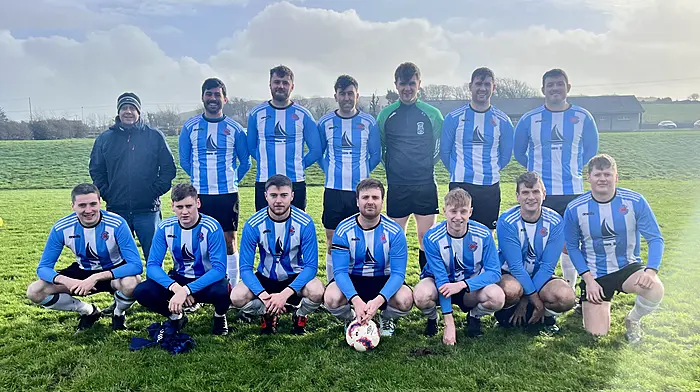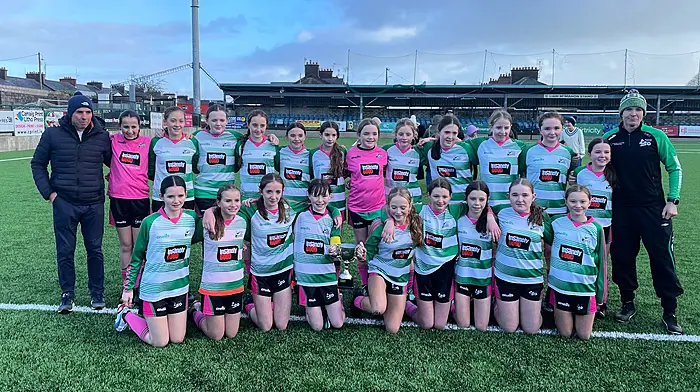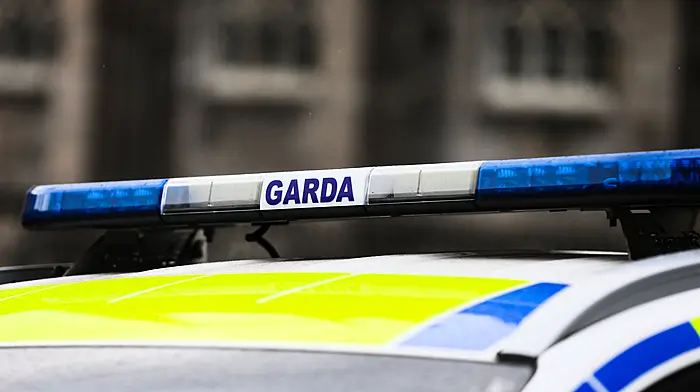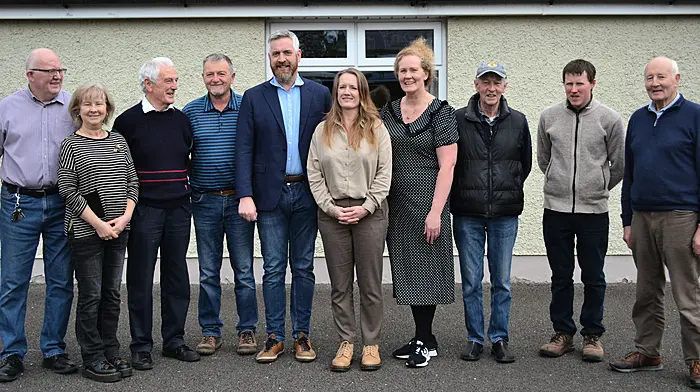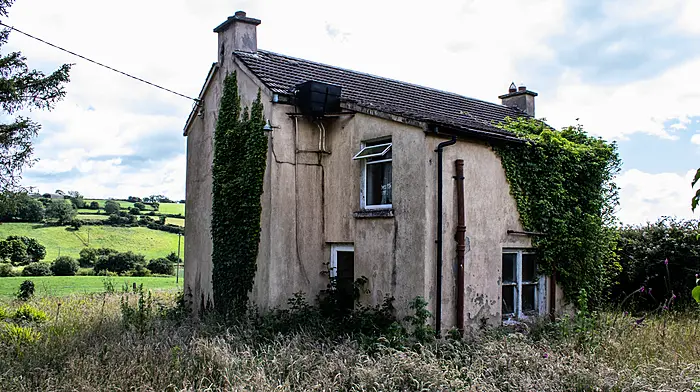IDEALLY, Tony Davis would be enjoying the first few months of his retirement from An Garda Síochána but these are far from ideal times.
Having enrolled in Templemore in October 1983, the two-time All-Ireland senior medallist with Cork was set to bring his tenure to an end in March. However, in the wake of the Covid-19 outbreak, he was asked to stay on as a sergeant in the crime-prevention unit.
There was no big holiday organised but the Skibbereen native was looking forward to spending the summer down west with his wife Caroline. Those plans are at least merely on hold rather than cancelled, with optimism that they might happen in September or so. For now, it’s more of the same – or rather, more of the different as he has noticed a big change in crime patterns as a result of the altered landscape. House burglaries, for example, are down as more people are at home, but unoccupied shops are more of a target than they would normally be.
Again, if right were right, he would be anticipating the beginning of the football championship season and that too is currently on the shelf. It will return, but the time and date are only vaguely notional for now. He’s happy though that the right decisions will be made, as opposed to the popular ones.
‘I have no doubt that the decisions made will be with the health of the players in mind rather than any other aspect,’ he says.
‘If you lined up a group of club players now and asked them if they wanted to get out on the field, sure they’d be mad to play. You kind of have to protect them from themselves – “This is the advice that we’re getting and this is what we’ve decided.”
‘I’m not sure that we’ll see any action this year. We’re still only learning about the virus and our knowledge about it is evolving all the time. Hopefully they’ll come up with a vaccine sooner rather than later and we can get back to some level of normality.’
Davis’s entry into An Garda Siochana came after he had won the first of two consecutive All-Ireland U21 medals – he would captain the side to victory in 1984 and Cork would make it three in a row in 1985, by which time the stylish defender had graduate to senior level. Prior to that, he was on the side that won the All-Ireland minor title in 1981.
‘If you look at the minor team, it was some team,’ he says.
‘They nearly all played senior. Then Cork won three U21s in a row in 1983, 1984 and 1985 and that was the basis for the team that won the senior All-Ireland in 1989 and 1990.
‘In 1984, a lot of us won a junior All-Ireland too, it was felt at the time that it would be a good way for us to learn how to play senior football.
‘Anybody that wasn’t playing senior club at the time was included. You had Conor Counihan, Teddy McCarthy, Danny Culloty, Mick McCarthy, there was a load more.
‘We had serious craic that year, it was great fun. We played the final against Warwickshire in Coventry, there was a crowd from Skibbereen over there at the time and they nearly kidnapped us the night before the game, we were lucky we were even playing at all.’
While O’Donovan Rossa are now an established senior club of 35 years’ standing, back then they were trying to break free of the intermediate ranks, meaning that their best players could play for Cork juniors – and Carbery.
‘That same year, I was midfield with Tim Crowley from Newcestown when Carbery beat Nemo in the first round in Clon,’ Davis says.
‘Nemo were the county, Munster and All-Ireland champions but we had a great team, it was one of those games that I was really looking forward to beforehand, the buzz of the championship. Even today, it still makes me sad when I pass through Clon and look left at where the pitch used to be, all the good days we had inside in that pitch and that was one of the best of them.
‘It was a window into that era of really good West Cork players.’
It was a hothouse that had a strong yield, with the 1989/90 panels featuring Davis and Mick McCarthy from Skibb as well as Castlehaven’s Niall Cahalane, John Cleary, Michael Maguire and Mick Burns.
‘We didn’t realise how good we were until we went to St Fachtna’s,’ he says.
‘For us, the standard we played at in West Cork was just the way it was, the competition locally was so strong and we didn’t really know how that compared. When we played with Fachtna’s, we were beating lads from Killarney and Tralee.
‘The junior in West Cork in the late 1970s and early 1980s was as good now as quite a few senior teams, they would hold themselves up against anyone.’
However, while the football was taken seriously, it wasn’t prioritised to the detriment of everything else. To some extent, Davis feels that the joy of playing is lacking nowadays.
‘We had good fun,’ he says.
‘You look at players now and they’re supreme athletes but, while there might be some enjoyment at club level, I don’t think an inter-county footballer is enjoying it.
‘The commitment is all pervasive and it is who they are as a person. They see themselves as an inter-county footballer. Like, bloody hell, when we finished in September we were told go back to our clubs and that was it, you weren’t a Cork footballer anymore until you started again the following year!
‘Now, it’s your identity, it’s your core, and that’s not a good thing, for a lot of reasons. Something could go wrong and you could be left swinging. Who are you then?’
Davis made it to the top – as well as winning with Cork he was central to Skibb’s golden season where they won the county and Munster titles in 1992 before going on to All-Ireland glory the following spring – but he doesn’t bask in the reflected glow.
The wins were celebrated and the losses mourned, of course, but it was always a case of looking ahead to the next challenge.
‘It was good but, when you’re going along doing it, you don’t think too much about it,’ he says.
‘We nearly won an All-Ireland at something every year but, if you asked me now where the medals are, I couldn’t tell you apart from the All-Irelands, my mother has one and I think Caroline has the other one.
‘I don’t know where the rest of them are, I never look back like that. People ask me about games and all that kind of stuff and I’m very bad, I can hardly remember it.’
The finer details may have been forgotten, but the memories of the experience last.
‘I can remember going to Cork minor training,’ Davis says.
‘We used to leave Fachtna’s and in the car you had John Cleary, Mick Burns – God rest him – Niall Cahalane and myself and we’d pick up Eoin O’Mahony in Clon. What a crowd of lunatics!
‘Mick Hegarty used to drive us up to training in Carraig na bhFear, what a craic it was. It was a long way to go to for Cork training but I’d have done it in bare feet.’

